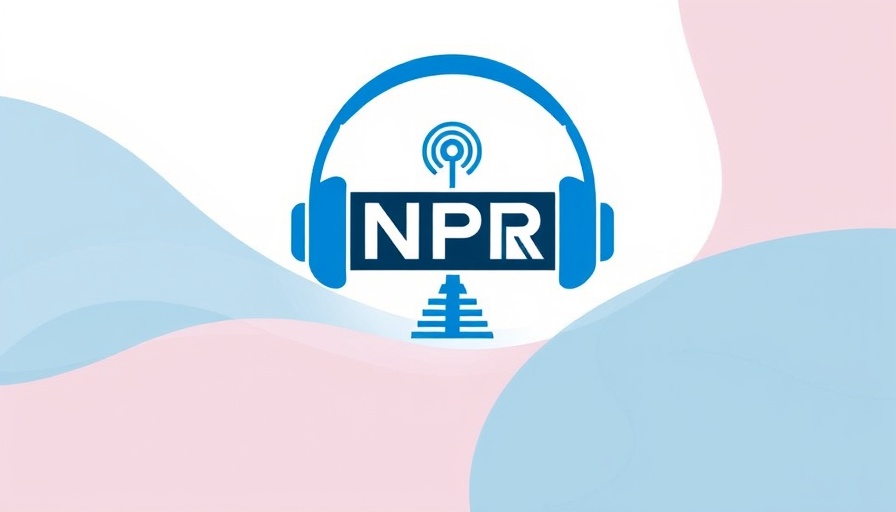
RFK Jr.'s Controversial Vaccine Policy: A Legal Showdown
In a significant move that has shaken the foundations of public health policy, Health Secretary Robert F. Kennedy Jr. has sparked a lawsuit from key health organizations after he removed COVID-19 vaccines from the recommended list for healthy children and pregnant women. The American Academy of Pediatrics (AAP), the American College of Physicians, and the American Public Health Association (APHA) allege that this decision violates federal law, constituting an arbitrary and capricious action that could undermine vaccine trust across the nation.
The Legal Implications of RFK Jr.'s Policy Shift
The lawsuit, filed in a Massachusetts federal district court, focuses on Kennedy's unilateral decision made in late May. According to the complaint, this action not only defied established protocols but threatened the integrity of the nation’s vaccine infrastructure. Dr. Susan Kressly, president of the AAP, emphasized the stakes involved, stating. 'Every child's health is at stake,' reflecting the profound concern these organizations harbor about the potential ripple effects of such a policy shift.
Understanding the Allegations Against the Health Secretary
The core accusation is that Kennedy's removal of these vaccine recommendations did not adhere to the lawful processes dictated by federal regulations governing public health decisions. The plaintiffs aim to not only reverse the changes but also seek a declaration from the court affirming them as unlawful. In their view, sidelining expert opinions and emerging evidence threatens not just the current health climate but future vaccination campaigns as well.
Why This Matters to Public Trust in Vaccines
The lawsuit's implications go beyond just the legal realm; they delve deep into the emotional and societal impacts of vaccine policy shifts. During a period when vaccine hesitancy is already a significant challenge, any perceived destabilization of public trust can have detrimental effects not just on individuals but on collective health outcomes.
This is particularly critical considering the backdrop of the COVID-19 pandemic, which has already seen polarized opinions around vaccines. This lawsuit raises pressing questions about how health policies are shaped in a democracy, particularly when trust in authorities is waning.
Historical Context: Vaccine Trust in America
Vaccine hesitancy is not a novel phenomenon in American history. From the 19th-century opposition to smallpox vaccination to contemporary debates around the MMR vaccine, distrust and skepticism have persisted. Each era has birthed its own controversies, yet the current climate, characterized by misinformation and politicization of health interventions, poses unprecedented challenges.
A historical lesson reveals that public confidence can be severely undermined by missteps from authorities or perceived caprice in policy decisions. This legal battle is pivotal not only for its immediate implications but for how it informs the long-term narrative of vaccine advocacy in America.
Future Trends: Navigating Public Health Decisions
As we look forward, this lawsuit may herald a new era in public health advocacy, where greater transparency and accountability are demanded by the public. If the court sides with the medical organizations, it could set a precedent that reinforces the need for collective input from health experts in shaping national health policies.
Moreover, with increasing access to information and mobilization on social media, advocacy groups may emerge more powerful and organized, creating a counterbalance to individual health secretary's decisions that could endanger public trust.
Calls for Action: What Can the Public Do?
In light of this developing situation, it’s crucial for concerned citizens to stay informed about health policies that directly affect them and their families. Advocacy at personal and community levels can foster discussions that clarify misconceptions regarding vaccines. Raising awareness about the legal, medical, and social dimensions of health recommendations can help cultivate an environment of constructive dialogue rather than divisive rhetoric.
As the suit progresses, following its developments will be essential not just for concerned parents but for anyone vested in the future of public health in America. The outcome of this lawsuit could redefine how health policies are communicated and trust is maintained within the community.
With organizations staunchly debating the implications of RFK Jr.'s decisions and public health potentially hanging in the balance, now is the time to engage in this dialogue actively.
 Add Row
Add Row  Add
Add 




 Add Row
Add Row  Add
Add 

Write A Comment